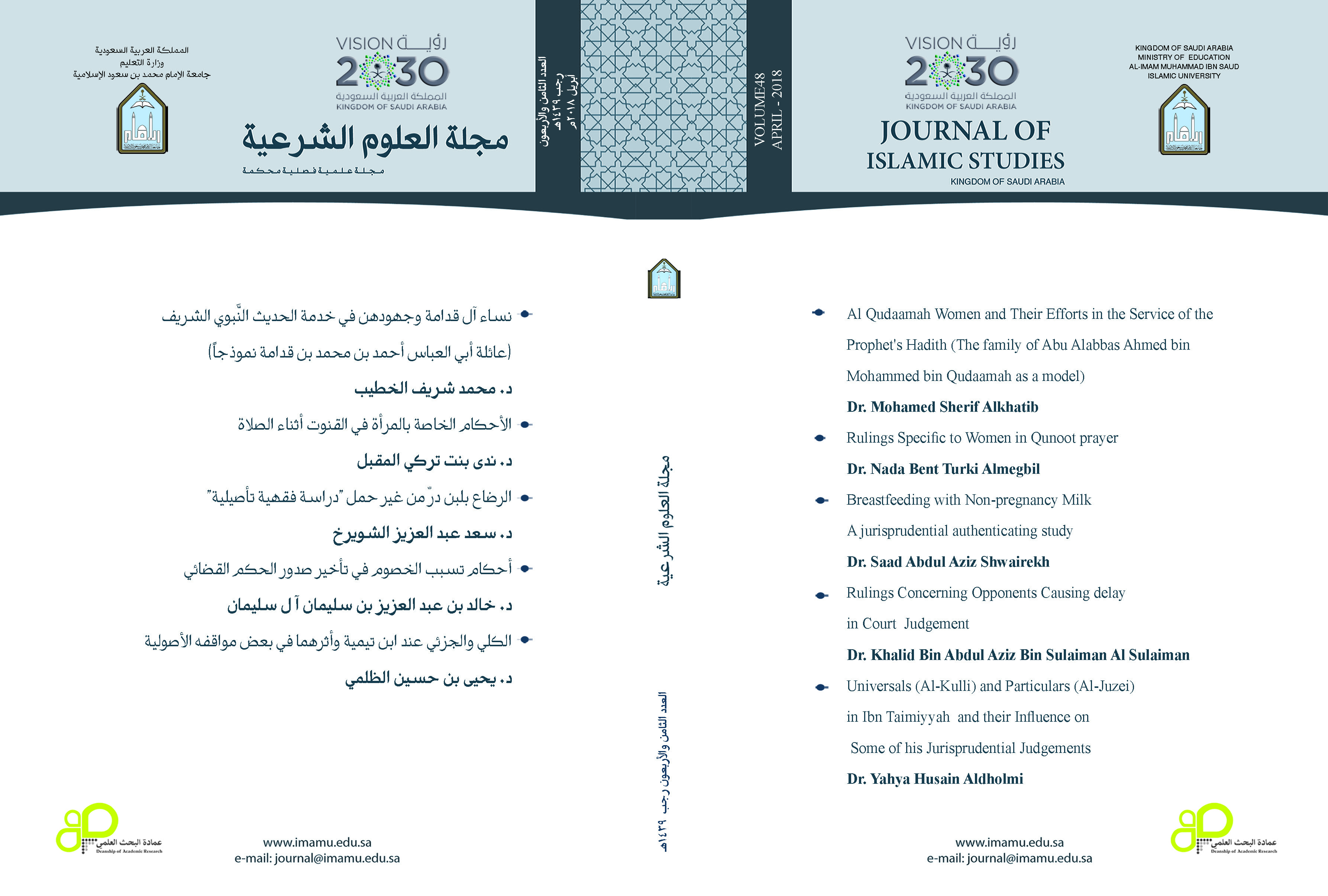Rulings Concerning Opponents Causing delay in Court Judgement
Abstract
Jurisprudents unanimously agree that a key requirement for filing a lawsuit is that it should be well-defined. If it is unclear and not well-written, i.e. if there is not enough information about plaintiff, defendant and the nature of the case, then lawsuits cannot be heard in court. Jurisprudents differ regarding the intervention of the judge on whether the lawsuit is known on its merits, but the recorded description of the case lacks accuracy. It is likely that the judge may intervene directly or indirectly so that lawsuits can be described properly and help can be provided to the needy party on correct basis, provided that there should be no preference for one party over the other. Malicious lawsuit is: "The lawsuit where the plaintiff claims for ‘something of no right for him’ with the aim of causing material or moral damage to other parties or seeking to disrupt the legitimate right of others, using fraud and false claims to evade their rights".
The moot lawsuit is: "The one which looks like a litigation in appearance but is deception and fraud in reality, aiming to establish the illegal lawsuit". Our interests here are those aspects of the moot lawsuit which are established to harm a third party. The most prominent difference between moot lawsuit and malicious lawsuit is that the key target of damage in malicious lawsuit is the defendant, while in the case of moot lawsuit, it is a third party against whom plaintiffs and defendants have colluded through illegal lawsuit with the intention of harming him. The judge must dismiss all those claims which are malicious or moot lawsuits as well as malicious defense and should initiate punitive deterring punishments for all those who deliberately lie and damage the lawsuit. This includes the plaintiff with malicious lawsuits or the defendant who makes malicious defense, as well as in those lawsuits where both plaintiff and defendant want to harm a third party.The judge should warn the litigants at the beginning of the litigation sessions of the malicious defense and remind them of the punishment of hereafter for anyone who grabs unjust right through false, malicious or moot lawsuits. He should also warn the parties that judges will be vigilant and firm with anyone found deliberately lying and deceiving for supporting falsehood, concealing the truth, and hurting the opponent. If it is proved to the judge that the defendant was deliberately absent without excuse, then the judge can initiate, out of his own will, any taziriya punishment for the defendant to discipline him. This is a general judgment that includes all intentional, partial or complete absence.
If the defendant has been informed about the lawsuit, and does not attend, a warning has been issued and he does not attend without any valid excuse, the judge can consider the lawsuits, and can make a decision based on the plaintiff’s witnesses as long as these witnesses are honest. This is in accordance with the view of most jurisprudents. The burden of proof of procrastinated lawsuits by the second party or lying and deliberately hiding the truth will be on the plaintiff whether he is a person who files the lawsuits or he is a general prosecutor, unless the truth is automatically proven during the case proceeding. The judge should, out of his own will, initiate punitive deterring punishments.




